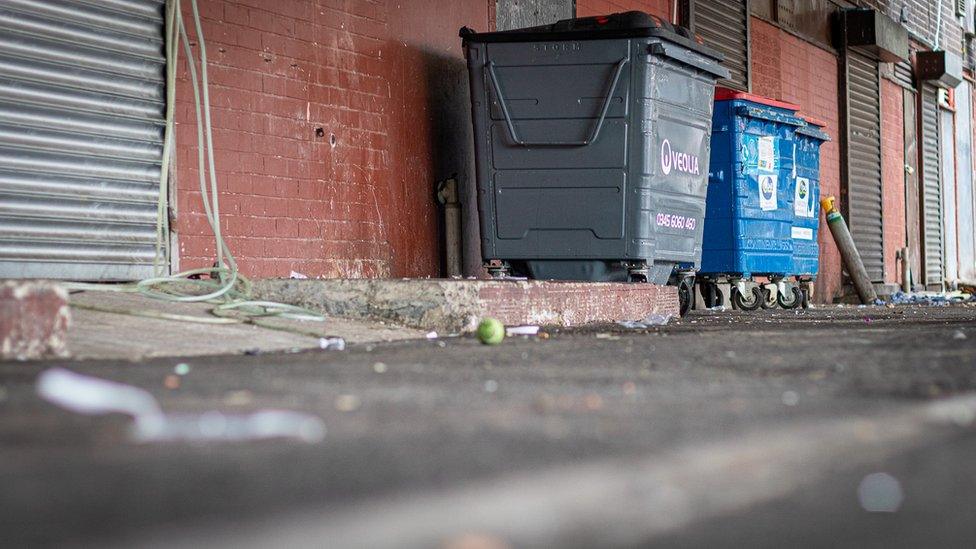Middlesbrough heroin addiction clinic secures funding until March
- Published
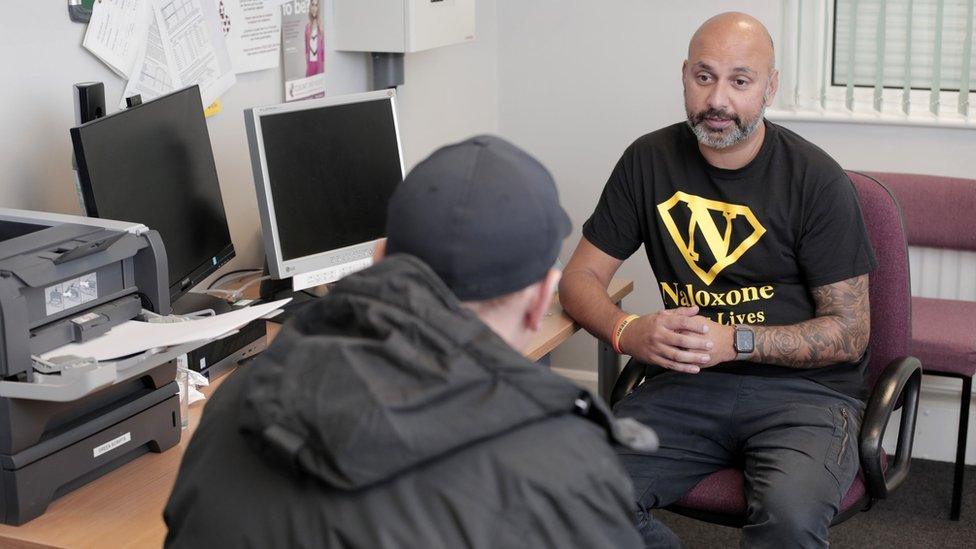
Clinical lead Daniel Ahmed said the eight addicts on the scheme were "doing really well"
A scheme which gives supervised diamorphine injections to heroin addicts is to be extended after securing new funding.
Middlesbrough's Heroin Assisted Treatment (HAT) aims to help people break the cycle of crime and addiction.
The recently elected Police and Crime Commissioner (PCC) for the town, Steve Turner, had vowed not fund the scheme.
It was due to end in September, but Mr Turner said alternative funds for the scheme had been secured until March.
HAT was launched in October 2019, and is part-funded by the PCC's office with money seized from the proceeds of crime.
It treats addiction as an illness and allows participants twice daily prescribed diamorphine injections under supervision.
The aim is for users to reduce their reliance on street drugs, prevent deaths and save money on tackling crime.
Clinical lead for the project Daniel Ahmed said money had been secured as part of the Project Adder, a government scheme to protect communities from crime caused by illegal drug use. , external
He said it cost £283,000 to run the programme between October 2020 up to September this year.
"There's been a real risk that the programme may not have continued and that would have been a real shame for the individuals and the whole town because there has been an impact from this programme in many areas.
"We've currently got eight individuals on the scheme and they're doing really well.
"They all appear to have broken the links with street heroin."
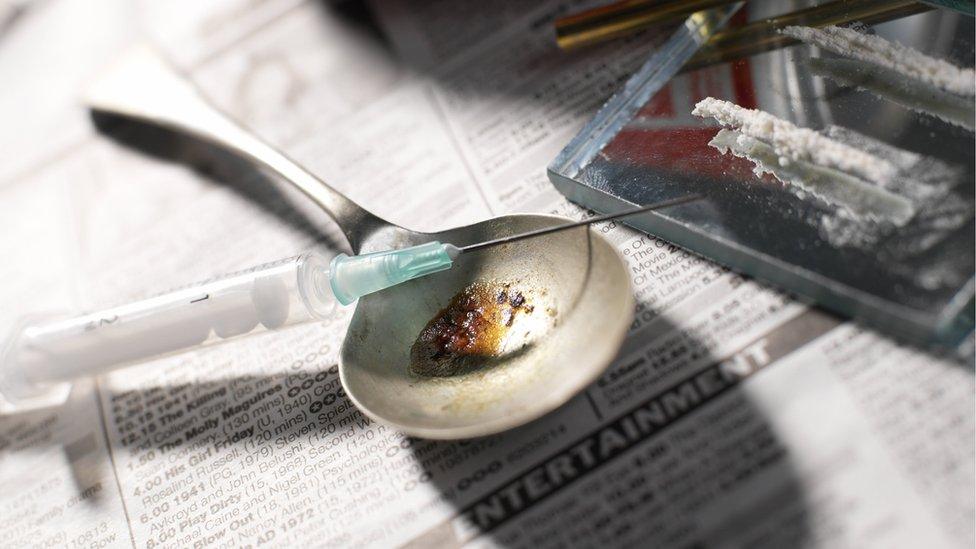
Those taking part in the scheme are high risk addicts who commit crime to fund their habit
In the run up to the local elections on 7 May, Conservative Mr Turner said the project would not be given money from his budget.
However, he told a meeting of the police and crime panel on Tuesday that the programme had secured alternative funding.
He said: "The current grant payment comes to an end on 30 September, so that's never been taken away.
"The programme has been a success for the individuals involved and I'm not taking away from that.
"But we have secured additional funding which is exactly what I said I'd do in my campaign.
"There will be a more in-depth study by Teesside University to see if it is cost-effective and useful for that programme to go ahead in the future."

Follow BBC North East & Cumbria on Twitter, external, Facebook, external and Instagram, external. Send your story ideas to northeastandcumbria@bbc.co.uk, external.
Related topics
- Published9 November 2020
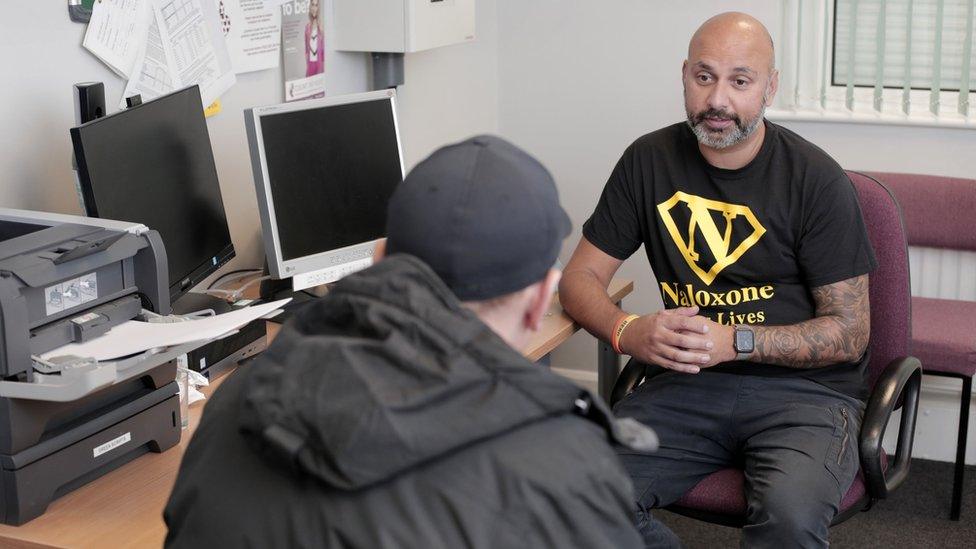
- Published24 February 2020
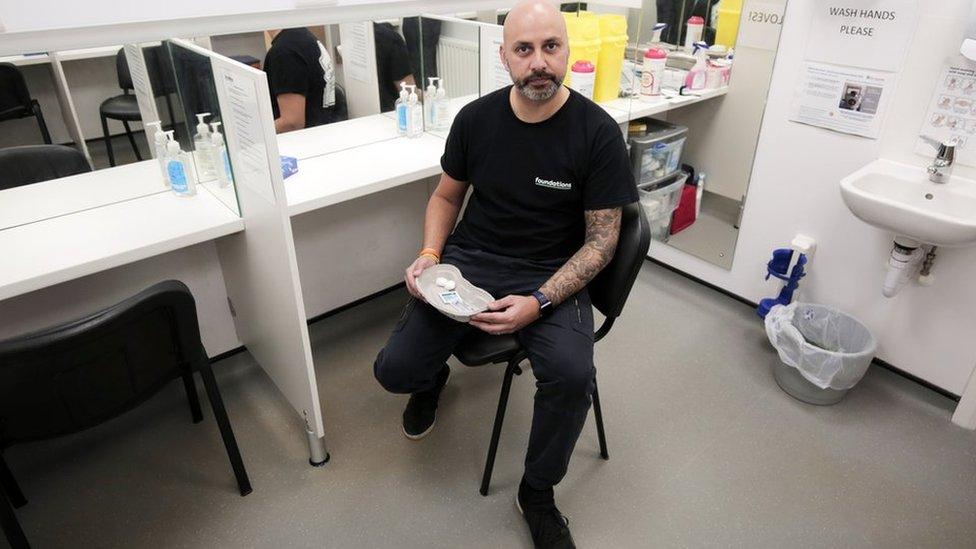
- Published9 October 2019
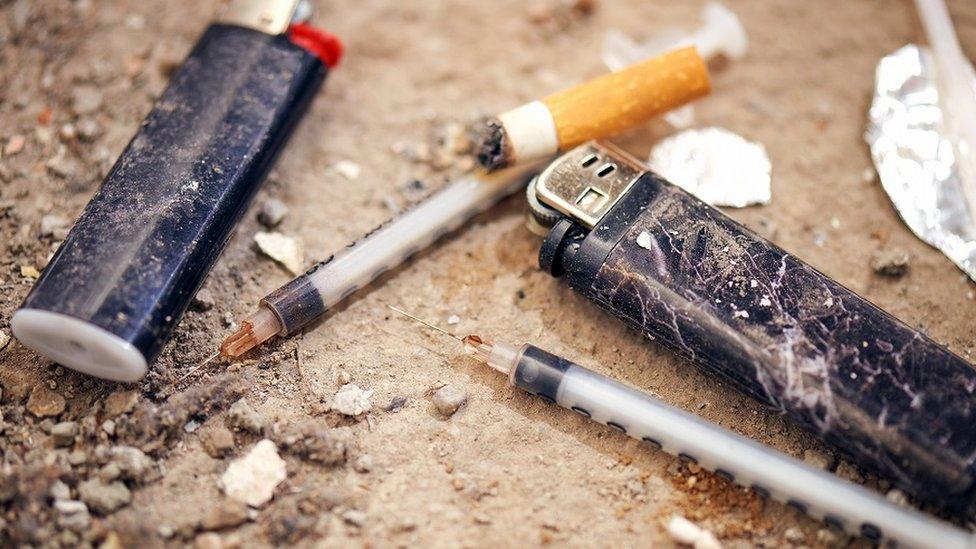
- Published1 July 2019
